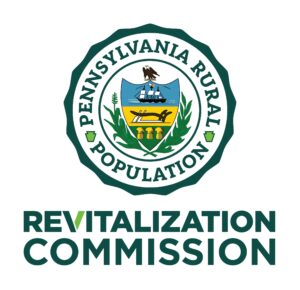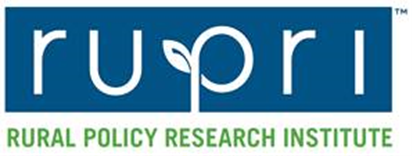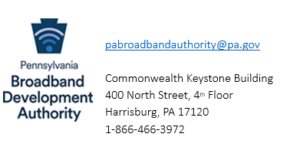
The Center for Rural Pennsylvania Board of Directors, alongside the Pennsylvania Rural Population Revitalization Commission, held an inaugural press conference on January 9, 2025 at the Erie Crossroads Conference Center at the Pennsylvania Farm Show Complex and Expo Center in Harrisburg. The event recognized and officially swore in the appointees to the Commission and highlighted its critical mission to address population decline and the challenges facing rural regions in Pennsylvania.
Established by Act 21 of 2024, legislation with bicameral, bipartisan support, the Commission is tasked with creating reviews and recommendations to attract and retain residents in rural areas. Its work will focus on addressing the challenges posed by population shifts and changing demographics in rural communities across the Commonwealth. The Commission will also recommend necessary legislative and regulatory changes to support rural revitalization.
This Commission will play a vital role in informing medium- and long-term planning at the county, regional, and state levels. Commission findings will guide efforts to address policy issues such as workforce availability, housing, healthcare, education, and transportation.
“The Rural Population Revitalization Commission is a first-of-its-kind initiative established to make Pennsylvania a national leader in retaining, attracting, and revitalizing the population of our rural communities,” said Senator Gene Yaw, Chairman of the Center for Rural Pennsylvania Board of Directors. “This collaborative effort is a critical step towards reversing population decline and pressures facing our rural communities and will provide the foundation for long-term success.”
“The Rural Population Revitalization Commission demonstrates what’s possible when legislators work across party and chamber lines for the good of Pennsylvanians,” said Representative Eddie Day Pashinski, Vice Chairman of the Center for Rural Pennsylvania Board of Directors. “I believe these talented commissioners from across rural PA are up to the task of identifying what’s working and what needs to change to improve the well-being of all our current—and future—residents. Through their work and the support of policymakers, this commission can make Pennsylvania a national leader in addressing rural population change.”
“From education to healthcare to transportation, the Commission’s findings will have a far-reaching impact, ensuring that rural Pennsylvania remains an attractive and viable place to live and work,” said Senator Judy Schwank, member of the Center for Rural Pennsylvania Board of Directors and Pennsylvania Rural Population Revitalization Commission. “In facing the pressures of population decline, it is imperative that we think not just about today, but about tomorrow. Planning and collaboration will be the foundation of our efforts.”
“Our report clearly shows Pennsylvania’s rural communities in decline,” said Representative Dan Moul, member of the Center for Rural Pennsylvania Board of Directors. “The Commission is tasked with finding solutions that will turn that around. One of the biggest obstacles will be government regulations that slow down progress and increase costs. I am hopeful they can cut through the red tape and find ways to reverse course.”
“It is an honor and privilege to serve as Chairman of the Commission, and I am confident that the appointees of this Commission will work tirelessly to achieve success in finding solutions,” said Dr. Kyle C. Kopko, Chairman of the Pennsylvania Rural Population Revitalization Commission and Executive Director of the Center for Rural Pennsylvania. “This Commission has the opportunity to turn the challenges facing rural communities in Pennsylvania into opportunities for revitalization, crafting meaningful recommendations that ensure the long-term vitality of our rural areas.”
The Commission’s collaborative approach, which includes input from state and local officials, nonprofit groups, business leaders, and industry experts, is essential for ensuring that rural Pennsylvania remains resilient in the years to come.
Commission appointees include:
- Dr. Kyle C. Kopko, Chairman, Pennsylvania Rural Population Revitalization Commission; Executive Director, Center for Rural Pennsylvania
- Senator Judy Schwank
- Senator Judy Ward
- Representative Paul Takac
- Representative Michael Stender
- Albert Abramovic, Venango County Commissioner
- Betsy McClure, Greene County Commissioner
- Janet Pennington, School Board Member, Southeastern Greene School District
- Mark Critz, Western Regional Director, Pennsylvania Department of Agriculture; Executive Director, Pennsylvania Rural Development Council
- Drew Popish, Northeast Regional Director, Office of Governor Shapiro
- Lisa Davis, Director, Pennsylvania Office of Rural Health
- Dr. Karen Riley, President, Slippery Rock University of Pennsylvania
- Jordan Grady, President, Butler County Chamber of Commerce
- Gina Suydam, President, Wyoming County Chamber of Commerce
- Nathan Lesh, Vice President, Pennsylvania Future Farmers of America
For more information, visit www.rural.pa.gov/commission.




